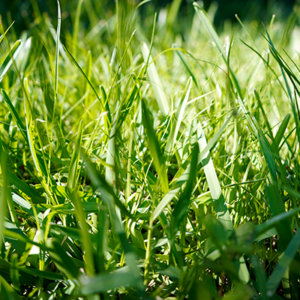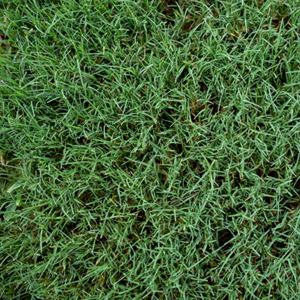Most of us are familiar with the green stuff that surrounds our Pensacola home and business. It even makes some of us sneeze when mowed. We know that grass exists and if you’re like me, well, it’s just always been there. But if you find yourself building a new property on vacant land, or wanting to renovate your landscape, suddenly it becomes a bit more complicated. Grass doesn’t just exist. There is so much more to this green vegetation than meets the eye. That is why Lawnmaster has taken the time to break it down for us and explain the different types of grasses, which type grows best here in Pensacola and thrives in our warm, humid climate with above-average rainfall.
Two Types of Grass; Cool-Season and Warm Season
There are two types of grasses, warm-season, and cool-season. Cool-season grasses such as Kentucky bluegrass, tall fescue, and ryegrass are more suited for our northern neighbors. This is because cool-season grasses grow best when temperatures are between 60 and 70 degrees and do not go into dormancy until the soil temperature falls consistently below 45 degrees. They are mostly grown in the upper two-thirds of the United States.
Warm-season grasses such as zoysia, St. Augustine, centipede, and bermuda go dormant in the winter when temperatures drop below 65 degrees and are more common here in the south. They are most active during the warmer seasons and prefer warm soil temperatures. While it is not uncommon to have a mixed blend of seeds containing both warm-season and cool-season grasses on our Pensacola properties, we primarily have warm-season grasses. Therefore, for the purpose of this article, we focus solely on these.
St. Augustine
Most popular in tropical and subtropical regions, this dark green grass is easily distinguishable by its wider blades. It is one of the most popular grass seeds here in Pensacola and the Gulf states, thanks to its tolerance to heat, salt, and humidity. St. Augustine grass grows best in the warmth of spring and summer when high temperatures are normally between 80 and 100 degrees. It grows well on a variety of soils as long as it is well-drained. However, St. Augustine grass does fall prone to turf fungi such as brown patch and gray leaf. It’s also susceptible to grubs and sod webworms. Fungicides and insecticides can control both issues.
Centipede
Centipede grass requires little maintenance, making it a popular choice for many Pensacola homeowners. It is a slow-growing, apple-green-colored, coarse-leaved grass that requires infrequent mowing and little fertilizer. It does require a full six hours of sun and is not tolerable of heavy foot traffic, which doesn’t make it a good grass for athletic fields or golf courses. And while it is highly tolerable of our heat, in those rare occurrences where we experience drought, it does need to be properly irrigated. Fortunately, centipede grass recovers from stress quickly.
Zoysia
Another low-maintenance warm-season grass is zoysia. It is a slow-growing, tough grass with a fine texture that requires little water or mowing. The dense turf of zoysia grass is often used in parks and golf courses throughout Pensacola due to its high tolerance to intense heat and heavy foot traffic. Zoysia requires full sun to maintain its lush appeal, and too much shade will cause the blades to thin. It also has a tendency to want to be the center of attention invading your flower beds and any other species growing on your lawn. This may be a good thing when helping to prevent weeds and fungi but may not score you any points with your neighbors if it starts to crowd out their lawn.
Bermudagrass
Bermudagrass is popular amongst golf courses, athletic fields, and high-profile residential and commercial landscapes due to its tolerance for high traffic. It can survive extreme temperatures and severe drought, shutting itself off and going into dormancy as needed. This light to dark green, dense turf is low-growing and has blades pointed with a ring of white hairs. Its roots can grow up to five feet deep, making it less prone to weed invasions. Bermudagrass has the fastest growing rate of any common warm-season grasses, making it a challenge to contain. In fact, in other regions, it is considered an invasive weed invading flower and landscape beddings. But for here in Pensacola, it could be the perfect solution for your lawn.
For All Your Lawn Care Needs in Pensacola, Florida, Call on Lawn Master
At Lawn Master, we offer complete lawn care programs that will create or maintain a healthy, lush lawn for your residential or commercial property. Our custom-designed lawn services were specifically developed to care for the warm season grasses listed above. We focus on balanced fertilization for each specific grass type and adjust pH levels based on environmental factors throughout the seasons. Our lawn care program starts in early spring and runs through winter. Visit our website’s lawn care page to learn more.
Contact us if you are a resident or business owner in the Pensacola area looking to renovate your lawn or need advice on which grass is best for your yard. Our technicians and trained experts can visit your current or future property and perform a detailed analysis evaluating the overall health of your lawn. We will then deliver a personalized report with pricing estimates on a customized plan. Contact us online or give us a call today. You can reach us at 850-476-1601.
For more informative articles like the one above, follow our monthly blog and/or check out all our previous blogs.